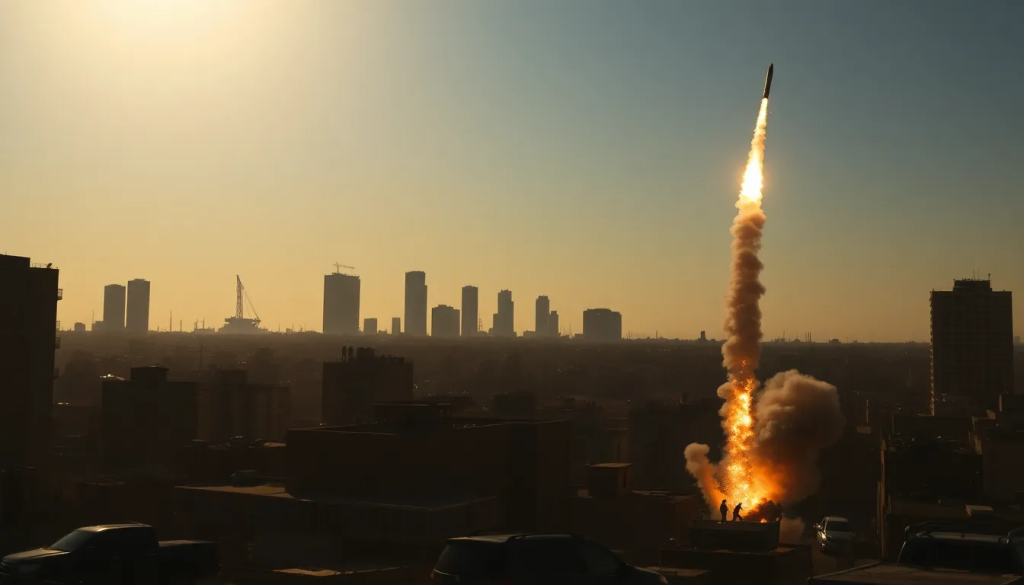Israel, Hezbollah, and Iran. What’s been brewing in the Middle East isn’t just the usual neighborhood scuffle—it’s an all-out chess game of rockets, espionage, and some old-school spycraft with very modern consequences. Get ready as we unravel the complex drama unfolding between Israel and Hezbollah, backed by Iran’s ambitions. Let’s dig in!
The Players: Iran, Hezbollah, and Israel's Chessboard
In one corner, you’ve got Iran, the puppeteer. They sponsor Hezbollah, which isn’t your run-of-the-mill militant group. Oh no, Hezbollah is part politician, part terror cell. They’ve got a political arm that actually tries to run the country of Lebanon (crazy, right?), and then there’s the other side—the militants, launching hundreds of rockets into Israel whenever they feel like flexing their muscles.
It’s like that awkward uncle who’s half-businessman, half-biker gang member. You want to trust him, but at any family dinner, you’re not sure if he’s going to pass the mashed potatoes or punch someone in the face. And just like that uncle, Hezbollah’s two sides constantly overlap, creating chaos.
But here’s the kicker: Hezbollah might be pulling some strings, but they’re playing Iran’s game. Iran uses Hezbollah as its muscle in the region, nudging them to launch rockets into Israel, making noise when they think Israel is distracted. Think of Hezbollah as Iran’s personal attack dog, always ready to bare its fangs.
But recently, Israel hit back harder than anyone saw coming.
The Explosive Pager Incident: Israel’s Spycraft Flex
In a moment straight out of a James Bond movie, Israel pulled one of the most savage, old-school tricks in the book: booby-trapping pagers. Yeah, pagers. Hezbollah fighters and their Iranian handlers were using them for communication, and thanks to Israel’s superior intelligence operations, they blew up. Imagine the shock on their faces when the very devices they trusted turned out to be bombs. Hundreds of Hezbollah fighters injured, many killed.
This was Israel’s way of saying, “Hey Iran, we’re watching you. Always.”
It didn’t stop there. A day after the pagers, Israel did the same with walkie-talkies. So Hezbollah had to revert to face-to-face meetings. And guess what? Israel was watching those meetings too. They took out key figures in Hezbollah, including a high-level commander named Ibrahim al-Aqil, the mastermind behind the 1983 Marine Barracks bombing, which killed over 240 Americans.
Escalate to De-escalate: The Middle East Negotiation Method
In the Middle East, there’s a bizarre but very real philosophy: escalate to de-escalate. Essentially, it means you hit your enemy harder and faster than they can hit you, so they back down. The more rockets fired, the more airstrikes launched, the better. It’s like trying to win a shouting match by being louder.
Hezbollah is lobbing rockets; Israel is retaliating with precision airstrikes. Both sides are posturing, trying to show who’s boss. Iran wanted to make some noise, thinking Israel was vulnerable after dealing with Hamas in Gaza. But Israel proved they weren’t as distracted as everyone thought. They’ve been blowing up ammo dumps, taking out launch sites, and systematically crippling Hezbollah’s ability to function.
Hezbollah’s Communication Breakdown: When Spycraft Hits Hard
One of the big stories here is how Israel completely crippled Hezbollah’s secure communication system. Without their pagers and walkie-talkies, Hezbollah commanders have been reduced to face-to-face meetings. While that might sound quaint, it’s also deadly for them. Every time they gather in person, Israel can spot them, track them, and…well…bomb them.
Imagine trying to run an army with no secure way to communicate. It’s like trying to organize a surprise party for 200 people without sending any invites—you’re going to miss a lot of key details.
The Bigger Picture: Iran’s Diminished Role
Now, let’s zoom out a bit and look at Iran. They’ve been trying to play the tough guy, backing Hezbollah and pushing their influence in the region. But with Hezbollah’s abilities being dismantled, Iran’s bark is suddenly a lot worse than its bite.
Sure, they can fund Hezbollah, and they’ve got militias all over the place, but the question is: can they truly retaliate against Israel without sparking something much bigger? Because if Iran goes too far, they risk dragging in other powers—including the U.S.—who would likely take out what’s left of Iran’s oil export capacity. Not exactly a smart move.

Rockets in the Air, But Israel Holds the Last Word
Right now, it’s still a messy situation, but Israel has the upper hand. They’re knocking out Hezbollah’s infrastructure, and with Iran’s support waning, Hezbollah is left firing off old-school rockets with little to no coordination.
Here’s the thing, though: even these random rockets are pretty useless thanks to Israel’s Iron Dome. This anti-missile system is the real deal. Against Hezbollah’s dumb rockets (the kind with no guidance system), Iron Dome is like a giant fly swatter, knocking them out of the air before they can do any real damage.
But let’s not get too cozy. Hezbollah can still fire rockets, and their ability to reorganize and train a new wave of fighters isn’t a matter of “if,” but “when.” Israel knows this. They aren’t just aiming to stop the rockets; they’re aiming to weaken the very fabric that holds Hezbollah together.
What’s Next for Hezbollah and Iran?
So, what’s the next move for Hezbollah? It’s clear they’re going to need time—probably more than a year—to rebuild their communication systems and retrain their forces. In the meantime, they’ll likely go quiet, licking their wounds and figuring out how to claw their way back.
For Iran, the stakes are even higher. They’ve lost a lot of face in the region. Their proxy, Hezbollah, is reeling. They want to respond, but any big move risks inviting direct U.S. military action—something they can’t afford.
It’s like playing a game of poker where Israel is holding all the good cards, and Iran is bluffing with a pair of twos.
Hezbollah’s Internal Struggles and Regional Impact
As Hezbollah reorganizes, the internal dynamics are likely to shift. Will the political arm step up to exert more control, or will the militants double down? The group’s political legitimacy in Lebanon could be at risk, as the country teeters on the brink of economic collapse.
The war with Israel isn’t just about rockets and airstrikes; it’s about influence. If Hezbollah falters, Iran’s credibility in the region takes a serious hit, and Israel becomes the dominant force in the area. This isn’t just about military tactics; it’s about regional power.
Where Do We Go From Here?
Now, here's where I turn to you, dear reader. The stakes are high in this region, and while Israel might seem to have the upper hand, the dynamics of the Middle East are fluid. Could this conflict spiral into something bigger? Could Iran strike back in ways we haven’t seen yet? And, how does this all play out on the global stage?
I invite you to share your thoughts in the comments below. What do you think Israel’s next move should be? Should they continue the pressure or ease up and hope Hezbollah crumbles from within?
Join the conversation, become a part of the iNthacity community, and apply to become a permanent resident or citizen of the "Shining City on the Web". Let’s shape the debate, share ideas, and navigate these troubled waters together.




















Post Comment
You must be logged in to post a comment.